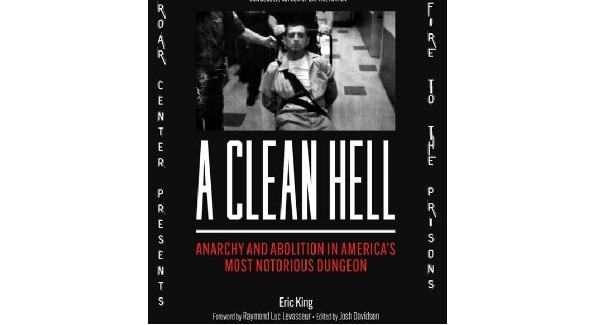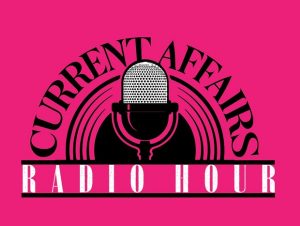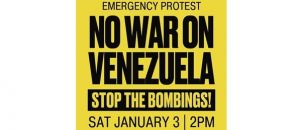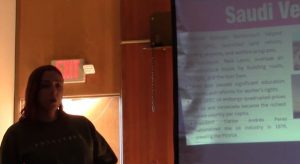Freed political prisoner takes UO ROAR Center inside a supermax prison
5 min read
Presenter: Freed political prisoner Eric King talks about his book, A Clean Hell: Anarchy and Abolition in America’s Most Notorious Dungeon. Speaking at the University of Oregon May 30, Eric King:
Eric King (Author & freed political prisoner): I’d just like to talk with you all. It’s going to be a vulnerable talk, there’s going to be lots of trigger warnings. And I just want to open up and talk about not just what my story did to me, but what can happen to any of us, anyone in the liberation movement.
[00:00:28] Because I’m not, like, I’m not f—ing special, but a lot of bad and unique stuff did happen, and it’s important to know that this s— can happen. And if you push that line and you go at them in certain ways, like they can go at you and we’re seeing that now. We’re seeing it with students just speaking out and getting punished. We’re seeing it with people fighting ICE.
[00:00:52] We’re just experiencing a really, really s—– time right now and it can get worse. And I’m going to talk about ways that it can get worse.
[00:01:02] So for y’all who don’t know me, I’m from Kansas City, and in 2014 there was an uprising in Ferguson, Missouri after the police killed a young Black man named Michael Brown. And that really affected me. I lived in the inner city, I was a part of the protest movement, and I saw what the police were. I’ve been seeing it my whole life as a poor kid, as a white trash kid, I saw what the police can do to people. And even like, I still had a position of privilege as a white man at that time, and I saw what was happening to my neighbors.
[00:01:44] And so when the cops killed Michael Brown, it really shook me. And I got upset because, in Kansas City at that time, there was not as much a response as I would have liked. And so I went on my little campaign and it was attacking the banks that had funded the Ferguson Police, Bank of America, U.S. Bank, jamming up their ATMs. We would use superglue, and we’d put in like a fake debit card and superglue it so they couldn’t get the money. Or we’d take a toothpick and you’d break it in their lock. And then you put superglue, they can’t open their doors.
[00:02:21] It was like my little vengeance for Michael Brown. And it wasn’t bringing him back, it wasn’t healing anybody. And so I went to Ferguson for three days to try to just be an ally. It wasn’t on some white savior s—. It wasn’t, ‘Everyone behind me, I got this.’
[00:02:39] But that did happen a lot. There was a lot of like, ‘We’re going to teach you how to rebel, but f—ing white kids showing up in an all-Black community telling them how to revolt? And that hurt me too. It hurt me because, What the f— are we doing? Like this is a community in mourning. This isn’t like a test for us to show our radical bona fides. These are people suffering.
[00:03:05] And so I came back to Kansas City and I just wanted to show the people of Ferguson that I love you, that you’re not alone in this struggle, even though it feels like you’re alone. Because while I was going to sleep in my comfy bed (I mean, it wasn’t comfy, I was sleep on couches and futons. But while I was going to sleep in my futon, they were smelling tear gas all night and hearing the National Guard fire at them.
[00:03:31] And so I firebombed that congressman’s office. He had supported the police, and even if he hadn’t, every, I’m an anarchist, every politician’s a target. There’s no—you’re not off the hook. And so I thought that was doing my part.
[00:03:51] And so after that, I went underground for about five days, carrying out my own little revolution. And if you’ve never done that, it’s very lonely. And 10 years later, you might be a little embarrassed by it. But it felt like I was at least standing on what I believe and that’s more than—it’s just more. It’s something.
[00:04:15] And I got arrested for that. I got arrested, someone told the police where I was and they rolled up on me one day with their machine guns on 31st and Holmes, and that was it.
I was booked that day and I went to 12th and Locust, that’s where the Kansas City Jail is, and they sit you in a room about… It’s just a small-a—- f—ing room. And it’s got about 50 people in it, it’s got the one toilet covered in s— in the corner.
[00:04:45] There’s no place to sit, of course, and you’re just in this room for three days, and so the FBI interviews you, finds out you’re not going to rat, ships you to a private prison called CCA. Right Now we’re going to be hearing about these core civic, CCA, GEO Group, you’re going to hear about them a lot the next couple of years because that’s who’s holding all the people Trump’s supporting.
[00:05:07] That’s where they are going to get tortured.
[00:05:11] And when I went there, I had a vision of prison as like a romanticized thing. I’m going to go there, we’re revolutionaries, I roll with everybody, we’re going to stand against white power, we’re going to stand against the authorities.
[00:05:27] And I was taught very quickly that that is not what will happen. I was taught very quickly that when you are in a situation where you have nothing, if you have a chance to feel like you have something, you will oppress the person next to you. There are people there that have never had anything their whole lives but imprisoned, they’re badasses, and they take on the role of the state and that broke my heart. It shattered me, for real.
[00:05:53] I, I thought I knew and I didn’t know. You think you know sometimes and you learn. You learn that, like, I was naïve. I was a child.
[00:06:04] Presenter: American political prisoner Eric King, author of the book, A Clean Hell. He spoke at the University of Oregon’s UO ROAR Center May 30. Recorded by Todd Boyle for his YouTube channel, where you can see Eric’s complete talk. Todd Boyle is a regular contributor to KEPW 97.3, Eugene’s PeaceWorks community radio.







